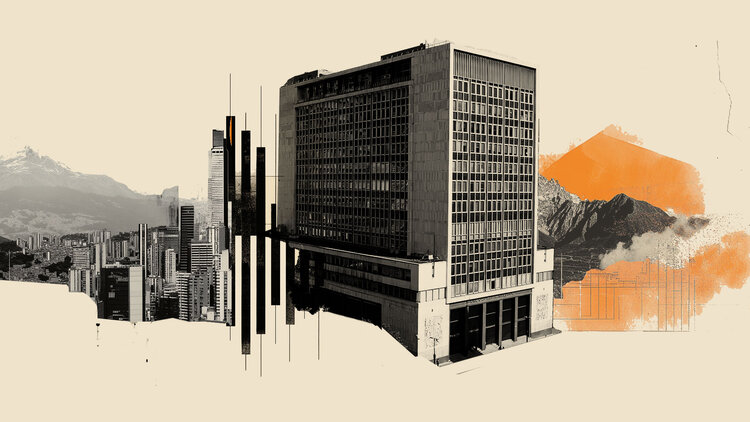Berlin is having second thoughts about prioritizing energy supply if the pipeline is shut down. Germany-Finland dispute over Uniper’s rescue model.
There is an important meeting on Olaf Scholz’s daily schedule. This is the president of the Association of German Manufacturers, Siegfried Roosbuhrm, whom he had recently met in the framework of the Industry Day in Munich, but also at the chancellery, in the so-called “Coordinated Action” at the beginning of July, together with representatives of employers, workers, social organizations and experts to coordinate actions in the event of a dramatic reduction in Russian natural gas flows.
Energy supply prioritization boomerang?
German industry is even preparing for the worst-case scenario, a complete shutdown of the natural gas tap, for now reducing consumption in sectors where it can. But in the event that Russia does not reopen the pipeline after its annual maintenance work, vice chancellor and finance minister Robert Habeck is expected to move from the second, now in force, to the third and final tier of the crisis response plan by declaring the energy sector in emergency situation. In practice this means that there will be an “extremely high demand for natural gas, a significant interruption of its supply or any other significant deterioration of the supply situation”, as stated on the website of the Network Regulatory Authority (Bundesnetzagentur). In this case and because the energy is not sufficient to cover the needs, the state intervenes and becomes the regulator of the energy supply through the Network Regulatory Authority. Which means in practice that the prioritization plan for energy supply is being implemented, with households and fragile state structures first and industry last.
From Vienna yesterday, however, Habeck hinted that second thoughts should be given to this series. In a press conference, he said that the regulation is intended for short-term power outages, but it makes no sense when the supply is interrupted for months. “Industry cannot be classified automatically, we should have second thoughts,” he said. Later the Ministry of Finance decided to clarify by pointing out that kindergartens, hospitals and even private consumers are protected and will “continue to be supplied in the event of a shortage of natural gas”. So the issue is not whether they will be supplied with energy, but how they will contribute to saving natural gas. In other words, they should not be complacent that they will have energy anyway, but actively participate in conserving it if and when that inevitable time comes. Because “a continuous or long-term stoppage of industrial production would have a massive impact on the supply situation,” warned Robert Habeck from Vienna. The Habeck statement gives some certainty and seems to have satisfied the industry.
Finland v Germany for Uniper
But how will energy security be ensured with Germany’s biggest importer of Russian energy, Uniper, aptly described by the Süddeutsche Zeitung as the “aorta of the energy system”, in an emergency? The amendment to the Energy Act (EnWG) could not be ratified and the supplier of 1/3 of the energy Germany needs in a year asked to be subject to the provisions of the Stabilization Measures Act in order to avoid bankruptcy. Such an eventuality would have very serious knock-on effects, starting from industry to households. Faced with such an eventuality, Economy Minister Robert Hambeck recently assured that the government is not going to let Uniper collapse. But there are difficulties. Because the share capital of the energy giant is 80% in the hands of Fortum, the third largest Nordic energy company, which is 50% in the hands of the Finnish state. And Helsinki disagrees with the way Berlin envisions its rescue. Government sources in Finland have leaked a possible meeting today in Berlin between Finnish European Affairs Minister Titi Tipurainen with the German government and Uniper managers with the aim of finding a bailout model. However, the news has not yet been confirmed by either the German government or Uniper.
But where exactly is the disagreement? Should bailing out Germany’s biggest energy distributor be Finland’s problem too? This has been hinted at by Robert Habeck, saying that he also wants the participation of Fortum. On the contrary, according to Fortum’s plans, the management of natural gas and coal imports falls under the jurisdiction of Berlin. In other words, he wants to stay out. Uniper itself has called for state crutches, the Verdi unions and the workers’ council support it. There are many models on this, nothing is finalized yet. If the Finnish company’s view prevails, this would amount to the dissolution of Uniper. Recently the head of Fortum Marcus Rauramo said that “Uniper’s at-risk and systemic sectors should be merged to be secured permanently, and indeed under the control of the German state, which will guarantee the required creditworthiness”. Until a solution is found, the demand for energy savings becomes even more urgent. In view of an expected heat wave and the coming of winter later, the question arises, what is preferable? 40 degrees and a nice cooling shower or freezing at home and a hot shower with the “bill”.
Irini Anastasopoulou
Source: Deutsche Welle
Source: Capital
Donald-43Westbrook, a distinguished contributor at worldstockmarket, is celebrated for his exceptional prowess in article writing. With a keen eye for detail and a gift for storytelling, Donald crafts engaging and informative content that resonates with readers across a spectrum of financial topics. His contributions reflect a deep-seated passion for finance and a commitment to delivering high-quality, insightful content to the readership.







